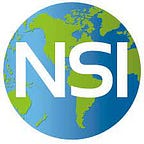How Intra-Industry Conflicts Shape the Techlash
By Zach Graves, NSI Visiting Fellow
In 2013, The Economist coined the term “techlash,” predicting that CEOs of large tech firms would soon “join bankers and oilmen in public demonology.” In recent years, this has come to fruition.
A majority of both Republicans and Democrats now support increased regulation of the tech industry. Additionally, half of Americans favor breaking up large firms like Amazon, Facebook, Apple, and Google. Policymakers on both sides of the aisle are also increasingly critical of the tech industry, with Republicans focusing on concerns over free speech and political bias, and Democrats focusing on economic power and societal harms. This has driven new policy debates at federal and state agencies and in Congress.
While there are real fears and anxieties underlying the backlash against big technology companies, when it comes to debating the specifics of new policies, this energy is not always spontaneous. Rival firms and industry groups, who are competing with or disrupted by tech, have scaled up advocacy campaigns to take advantage of this environment.
Sometimes this advocacy is direct, like when Apple CEO Tim Cook called out competitors for putting “profits over privacy.” Or when Microsoft CEO Brad Smith endorsed legislation that would give news publishers more leverage over Facebook and Google. Other times, this entails indirect public affairs campaigns, working behind the scenes through third parties like trade associations, academic centers, think tanks, advocacy groups, and pundits to undermine their rivals and capture regulations.
Prominent examples of intra-industry conflicts include Oracle’s long-running campaign against Google, a dispute rooted in Google’s use of Java APIs in its Android operating system. Recode described this as a “cloak-and-dagger, take-no-prisoners lobbying campaign,” which included funding anti-big tech front groups like the Tech Transparency Project, seeding negative stories in the press, and a stunt involving a “magic suitcase” showcased around Congress.
Industries disrupted by tech have also taken part. For instance, news publishers have recently scaled up lobbying and public relations campaigns against Google and Facebook, who cut deeply into their advertising market share as expenditures have shifted to targeted online advertising. While top outlets like the New York Times have successfully shifted to online subscriptions, many other publishers have been hit hard. This has led to antitrust and regulatory actions against Facebook and Google, including efforts to weaken Section 230 (which would hurt companies that rely on user-generated content), promote stronger copyright laws, and other measures.
In other instances, the hotel industry has campaigned to weaken Section 230 in an effort to undermine rivals like AirBnB and HomeAway. Walmart and other traditional retailers have funded campaigns targeting Amazon. Yelp fanned the flames of tech antitrust. UPS allegedly targeted Amazon for getting an unfair subsidy from rival USPS. IBM, Fox, Oracle, and others have endorsed regulatory changes that don’t really affect their businesses but likely hurt rivals like Facebook and Google. And Microsoft was behind the “Scroogled” campaign, among other efforts. Not surprisingly this has led to an arms race, with large tech firms building up their D.C. operations and expenditures, and recruiting their own roster of defenders.
This kind of activity isn’t just limited to U.S. firms. Foreign governments and state-backed companies like Huawei have also utilized think tanks, academic centers, and other third parties to carry out advocacy campaigns to promote their agenda without necessarily attaching their name to it. Because of broad loopholes in statutes like the Foreign Agents Registration Act (FARA) and the Lobbying Disclosure Act (LDA), much of this activity happens in the dark. We don’t really know what mischief they’re up to.
While lobbying and advocacy activities are not necessarily nefarious, the current lack of transparency surrounding them can support regulatory capture, undermine U.S. global competitiveness, exacerbate the techlash and calls for heavy-handed regulations, and advance the interests of foreign adversaries. If left unchecked, this threatens to undermine our national security and technological edge at a time when we’re at risk of falling behind in key strategic technologies.
While this can raise complex issues of balancing transparency, speech, and anonymity, even small reforms could go a long way in protecting the integrity of our policy discourse.
Zach Graves is a Visiting Fellow at the National Security Institute and head of policy at Lincoln Network (www.lincolnpolicy.org).
